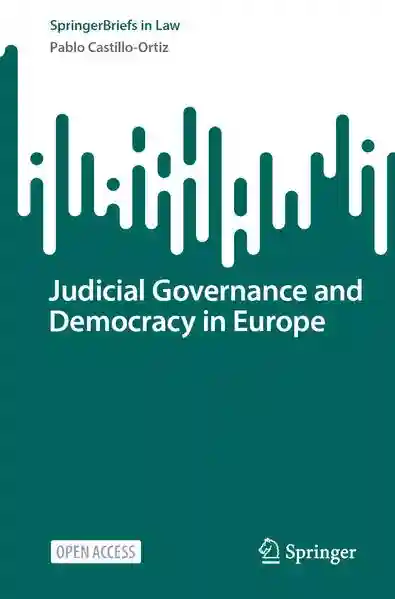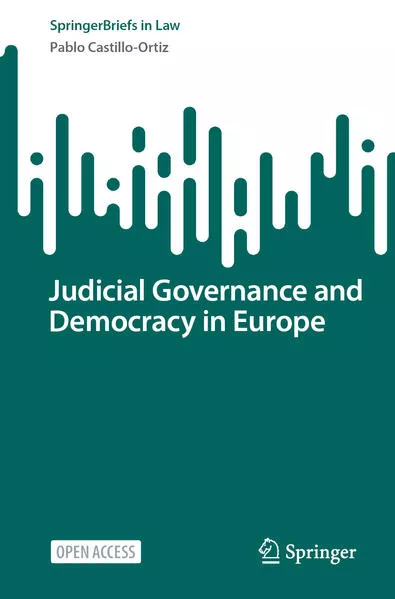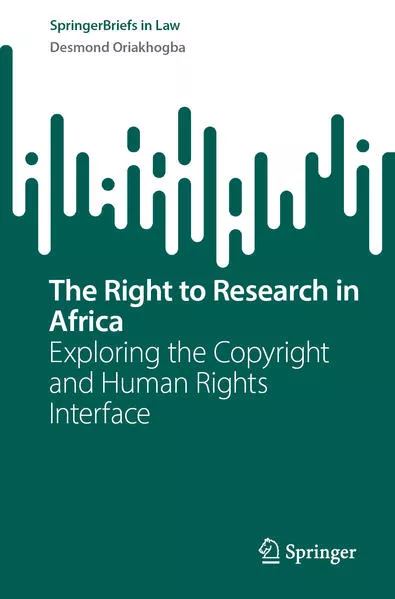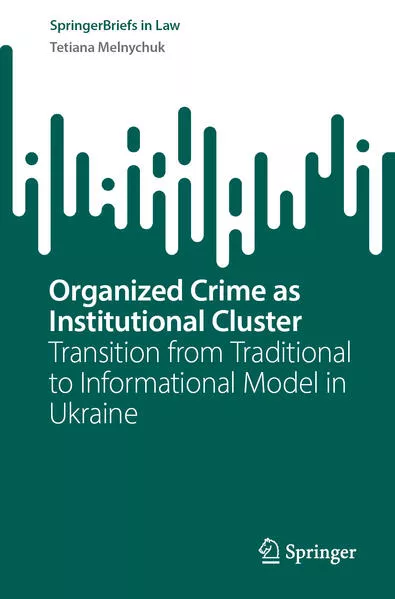Chronologie aller Bände (1 - 3)

Die Reihenfolge beginnt mit dem Buch "Judicial Governance and Democracy in Europe". Wer alle Bücher der Reihe nach lesen möchte, sollte mit diesem Band von Pablo Castillo-Ortiz beginnen. Der zweite Teil der Reihe "The Right to Research in Africa" ist am 15.07.2023 erschienen. Die Reihe umfasst derzeit 3 Bände. Der neueste Band trägt den Titel "Organized Crime as Institutional Cluster".
- Anzahl der Bewertungen für die gesamte Reihe: 1
- Ø Bewertung der Reihe: 4
Diese Reihenfolge enthält 3 unterschiedliche Autoren.
- Autor: Castillo-Ortiz, Pablo
- Anzahl Bewertungen: 1
- Ø Bewertung: 4.0
- Medium: Buch
- Veröffentlicht: 14.03.2023
- Genre: Politik
Judicial Governance and Democracy in Europe
This is an Open Access book.
Amid the growing debate about models of judicial governance and their relationship to democratic quality, this book offers a systematic and empirical study of this relationship. The book thereby contributes to filling in this gap for the European continent. Taking an interdisciplinary politics and law perspective, and combining empirical and theoretical considerations, the book addresses the important link between democracy and judicial governance. In particular, it provides for three interconnected contributions. First, the book provides for a comprehensive classification of European countries into different models of judicial governance. Second, the book analyses empirically the relationship between the design of judicial governance and the quality of democracy. Third, building on those findings, the book presents policy reflections for the reform and improvement of mechanisms for judicial governance in European countries.
The book seeks to refine our knowledge about the relationship between judicial governance and democracy, making an important academic and social contribution. In an era in which many democracies backslide and deconsolidate, it assesses to what extent existing mechanisms for judicial governance have contributed to the stability and quality of democratic systems in which they are implemented. Furthermore, the book puts forward reflections to improve the role of organs for judicial governance in fostering the quality of democracy.
Since the book introduces in an accessible form key concepts of Judicial Governance, it will be of interest for the general public as well as academics and students in the fields of Law and Political Science. The book also addresses policy makers, as based on our empirical knowledge about the interaction judicial governance and democracy it puts forward ideas for a design of judicial governance that is more capable of protecting democratic systems of government.
- Autor: Oriakhogba, Desmond
- Anzahl Bewertungen: 0
- Ø Bewertung:
- Medium: Buch
- Veröffentlicht: 15.07.2023
- Genre: Politik
The Right to Research in Africa
To achieve such a balance, there is an urgent need to revise the African copyright system from the perspective of human rights law. Can it be done by establishing a human right to research? In view of the existing broad freedom of expression, and the right to science and culture, education, and property in global, national and regional human rights regimes, is a specific right to research in Africa necessary and justifiable? If so, what should its minimum core components be? Are there international and national regimes already in place that could support the formulation of a human right to research in Africa?
This book offers a valuable resource for law- and policymakers in the fields of copyright and human rights, judges, lawyers, public interest groups, researchers and students, librarians and authors, as well as the general public.
- Autor: Melnychuk, Tetiana
- Anzahl Bewertungen: 0
- Ø Bewertung:
- Medium: Buch
- Veröffentlicht: 18.09.2023
- Genre: Krimi
Organized Crime as Institutional Cluster
From the perspective of institutionalism and theories of clusters, this book provides a concept of organized crime as an institutional cluster in contrast to the concept of multiple offences, associated with organized criminal groups or/and criminal organizations.
The book offers shifts in the methodology of organized crime analysis and extrapolates the tools of cluster modelling – successfully approbated in the social and economic sciences as a method for the organization of spatially localized systems – to the criminological field. Such an approach gives a fresh view of organized crime essence and contributes to the deeper and more sophisticated understanding of organized crime modus operandi, as well as its influence on the social landscape.
Organized crime in today’s world is increasingly moving from rigidly structured entities to decentralization with unclear, blurred edges and a hybrid structure, which is dictated by the rationality of adapting to social change, including the emergence of new widespread demands for illegal goods and services, new ways to evade social control, the prevalence of poly-criminal activities, the involvement in general digitalization, and so on. Specifically, the study is focused on the evolution of organized crime models in Ukraine considering the socioeconomic, political, and ideological background. Organized crime in Ukraine has gone through numerous transitions, encompassing professionally or traditionally organized criminal groups (the so-called community of ‘thieves in law’), functional racketeering groups, businessmen who accumulated their initial capital through the shadow economy, bureaucratically constructed groups from former official vertically powerful ruling circles, networks of personal or professional connections of the Soviet special services, oligarchic-clan pyramidal structures and amorphous delocalized cyber entities.
This book also gives a broad picture of contemporary criminal clusters in Ukraine and an assessment of a full-scale war’s impact. Russia’s invasion on 24 February 2022 and massive hostilities provoked a turbulent situation for organized crime, resulting in the breaking of former criminal ties and the degradation of certain criminal and corrupt practices. At the same time, the war and the martial law regime created opportunities for organized crime in Ukraine to develop new illegal markets and relocate existing ones.


